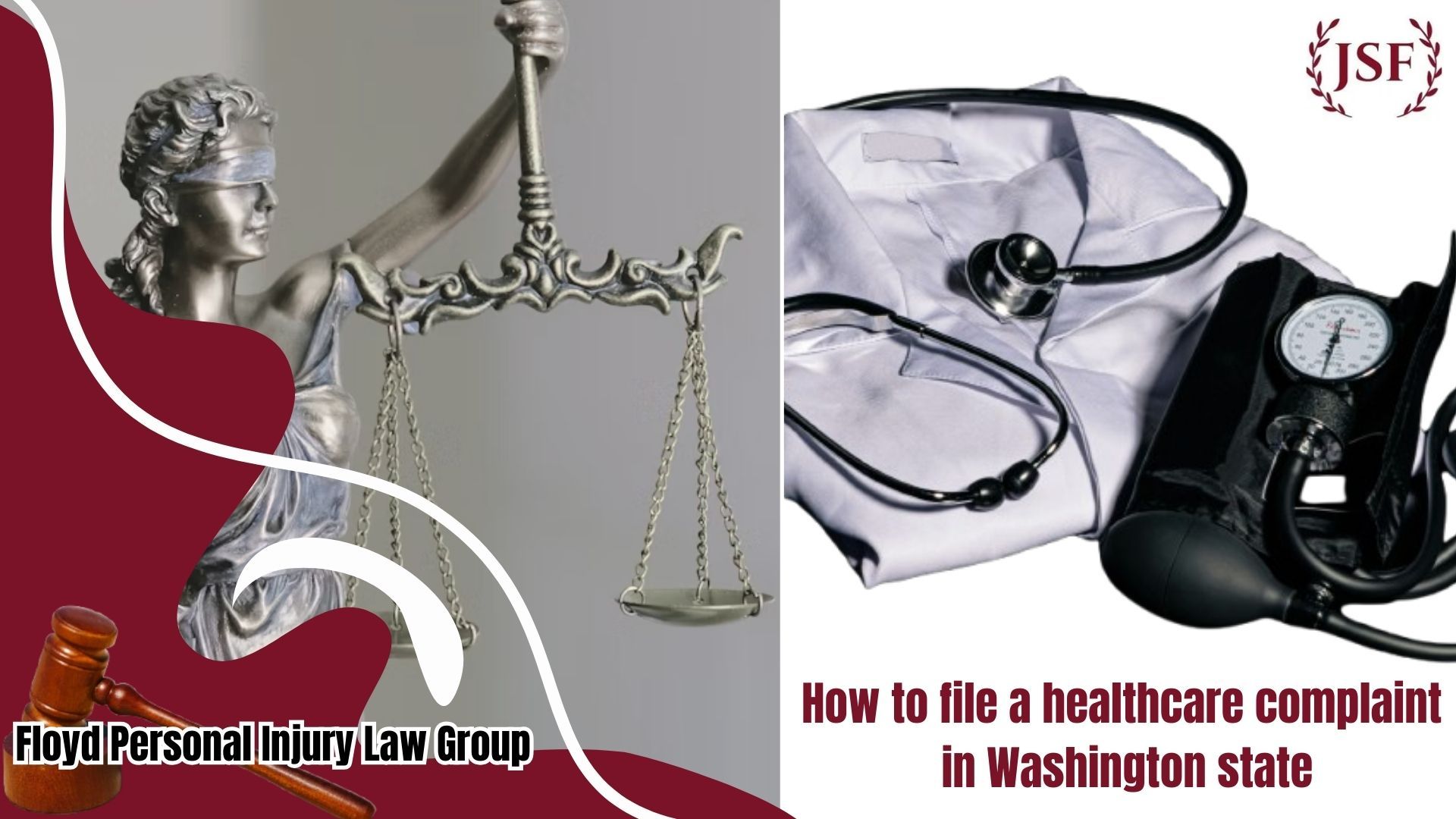How to File a Healthcare Complaint in Washington State

Filing a complaint against a healthcare provider in Washington can protect patient rights, hold professionals accountable, and help prevent future harm. If you believe you’ve experienced negligence or misconduct, understanding the correct process is critical. This guide explains how to determine the right agency, gather evidence, prepare an effective complaint letter, and understand possible outcomes with trusted legal support fromFloyd Personal Injury Law Group.
Determining the Correct Agency for Your Complaint in Washington
The first step is knowing which agency handles your type of complaint. In Washington:
- Washington State Department of Health – Handles complaints about licensed healthcare professionals such as doctors, nurses, and dentists.
- Washington Medical Commission – Oversees physicians and physician assistants.
- Local Hospital Administration – Reviews internal policy violations and patient care issues.
- HIPAA Compliance Office – Handles privacy and confidentiality breaches.
Choosing the correct agency ensures your complaint is reviewed promptly and by the appropriate authority. If you are unsure, an attorney can guide you through the jurisdiction requirements.
What Evidence You Need to Support Your Case
A strong healthcare complaint is backed by solid documentation and gather:
- Medical records related to the incident.
- Written communication (emails, letters, or text messages) with the provider.
- Billing statements showing charges for disputed care.
- Witness statements from staff, family members, or other patients.
- Photographs or reports of injuries or unsafe conditions.
Washington law often requires proof of harm or deviation from standard care. An attorney experienced in medical complaints can ensure your evidence meets legal standards.
How to Write a Clear and Effective Complaint Letter
Your complaint letter should be concise, factual, and organized:
- State your purpose clearly in the opening sentence.
- Identify the provider by name, license number, and facility.
- Describe the incident in chronological order.
- Reference supporting documents without sending originals.
- Request specific action such as investigation, corrective measures, or policy changes.
Tip: Avoid emotional language. Stick to verifiable facts and dates for a stronger case. Attorneys can help format your letter so it meets agency requirements and legal best practices.
Possible Outcomes After Filing a Healthcare Complaint
Once submitted, your complaint may lead to:
- Investigation by the licensing or regulatory agency.
- Corrective actions such as additional training, supervision, or policy changes.
- Disciplinary measures like license suspension or revocation.
- Dismissal if the agency finds insufficient evidence.
In some cases, complaints uncover systemic problems, prompting broader healthcare reforms. If your complaint is dismissed but harm occurred, you may still have a valid legal claim for damages through a civil lawsuit.
Why Work with
Floyd Personal Injury Law Group
Navigating Washington’s healthcare complaint process requires precision and legal insight.
Floyd Personal Injury Law Group helps Kent, WA residents:
- Identify the correct agency for their case.
- Collect and present strong evidence.
- Draft compelling, legally sound complaint letters.
- Pursue further legal action if needed.
Our team ensures your rights are protected and your complaint is taken seriously from start to finish.
FAQ
1. How do I file a healthcare provider complaint in Washington?
You can file a complaint through the Washington State Department of Health or the relevant licensing board. Include detailed information about the incident, the provider’s name and license number, and supporting documents. An attorney can help ensure your complaint meets all requirements.
2. What agency handles medical negligence complaints in Washington?
Medical negligence complaints involving doctors are reviewed by the Washington Medical Commission. Complaints involving other healthcare professionals go to the Department of Health. HIPAA violations are reported to the U.S. Department of Health and Human Services.
3. What evidence is needed for a strong healthcare complaint?
Key evidence includes medical records, written communications, witness statements, billing records, and photographs. The more specific and organized your documentation, the stronger your case.
4. Can I file a complaint against a hospital in Kent, WA?
Yes. You can submit your complaint to the hospital’s patient advocacy office and to the appropriate Washington State regulatory agency. If the issue involves negligence, an attorney can guide you through both the complaint and potential legal claims.
5. What happens after I file a healthcare complaint?
The agency will review your complaint, determine if an investigation is warranted, and may take corrective or disciplinary actions. You will be notified of the outcome in writing. If your complaint is dismissed but harm occurred, legal representation may still help you seek compensation.
6. How long do I have to file a healthcare complaint in Washington?
Deadlines vary depending on the nature of the complaint. While some complaints can be filed months or even years later, it’s best to act quickly to preserve evidence and meet legal timelines.
7. Should I hire an attorney for a healthcare complaint?
Yes, especially if your complaint involves serious harm or medical negligence.
Floyd Personal Injury Law Group helps clients in Kent, WA and surrounding areas navigate the process, strengthen their cases, and pursue additional legal remedies when appropriate.
(206) 575-7562
(206) 575-7563
Social Media Channels











